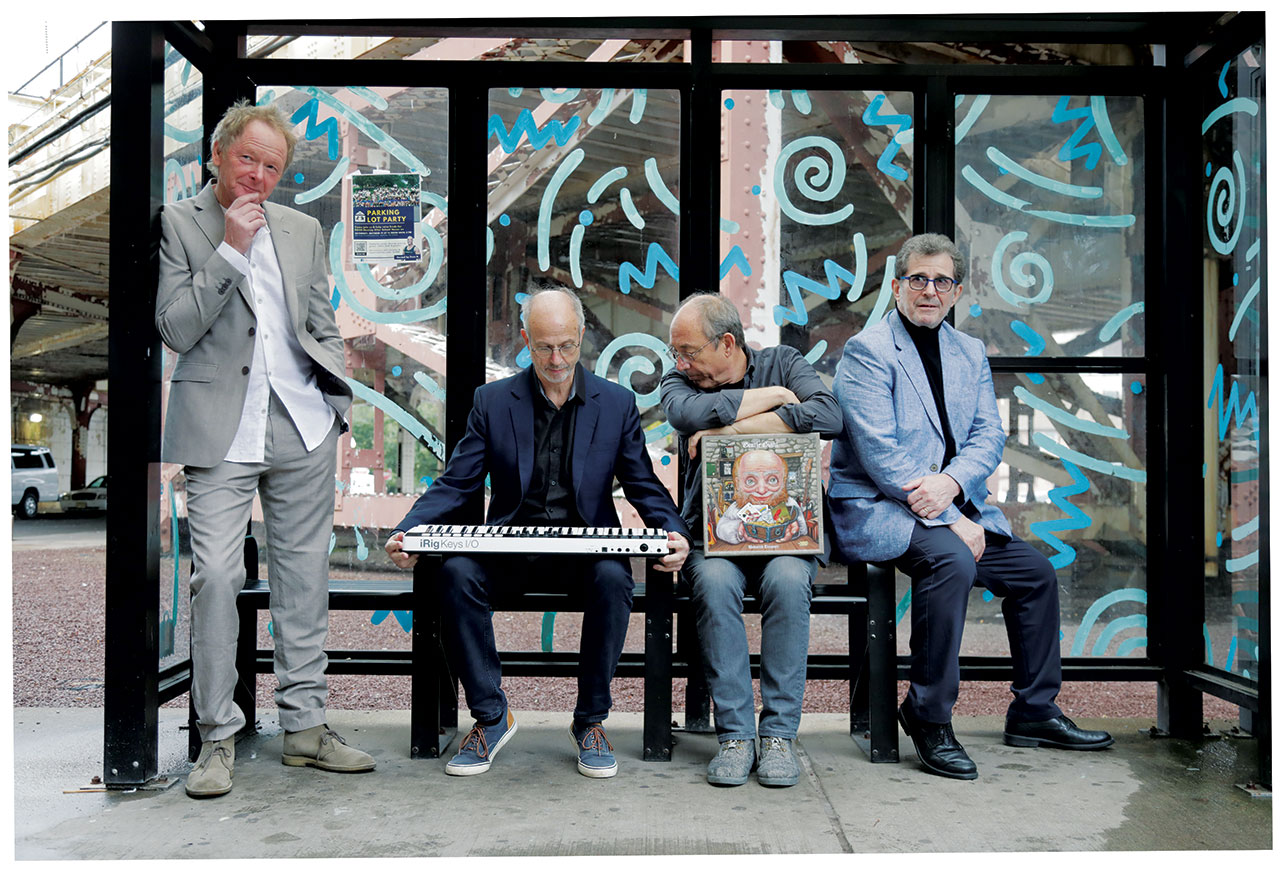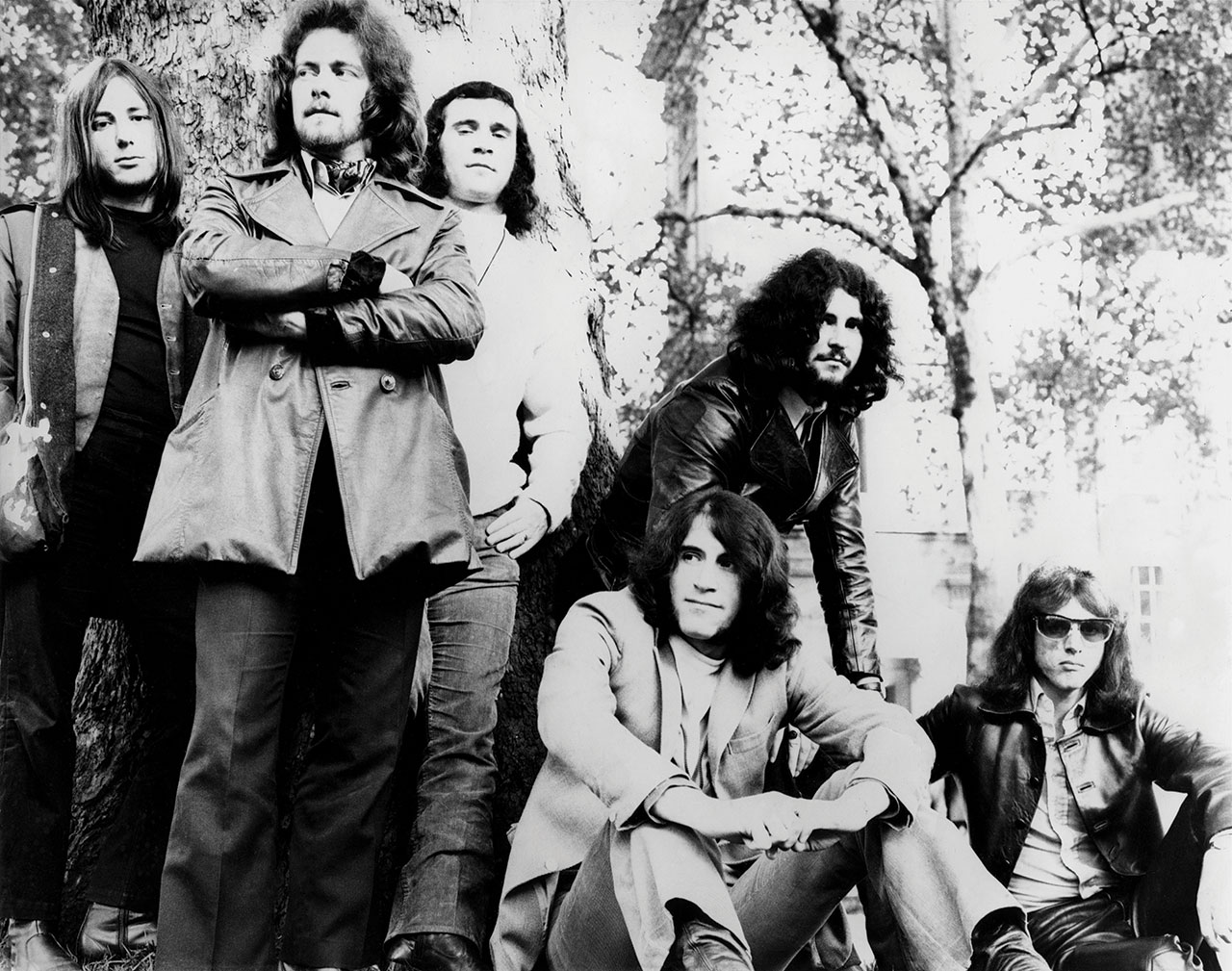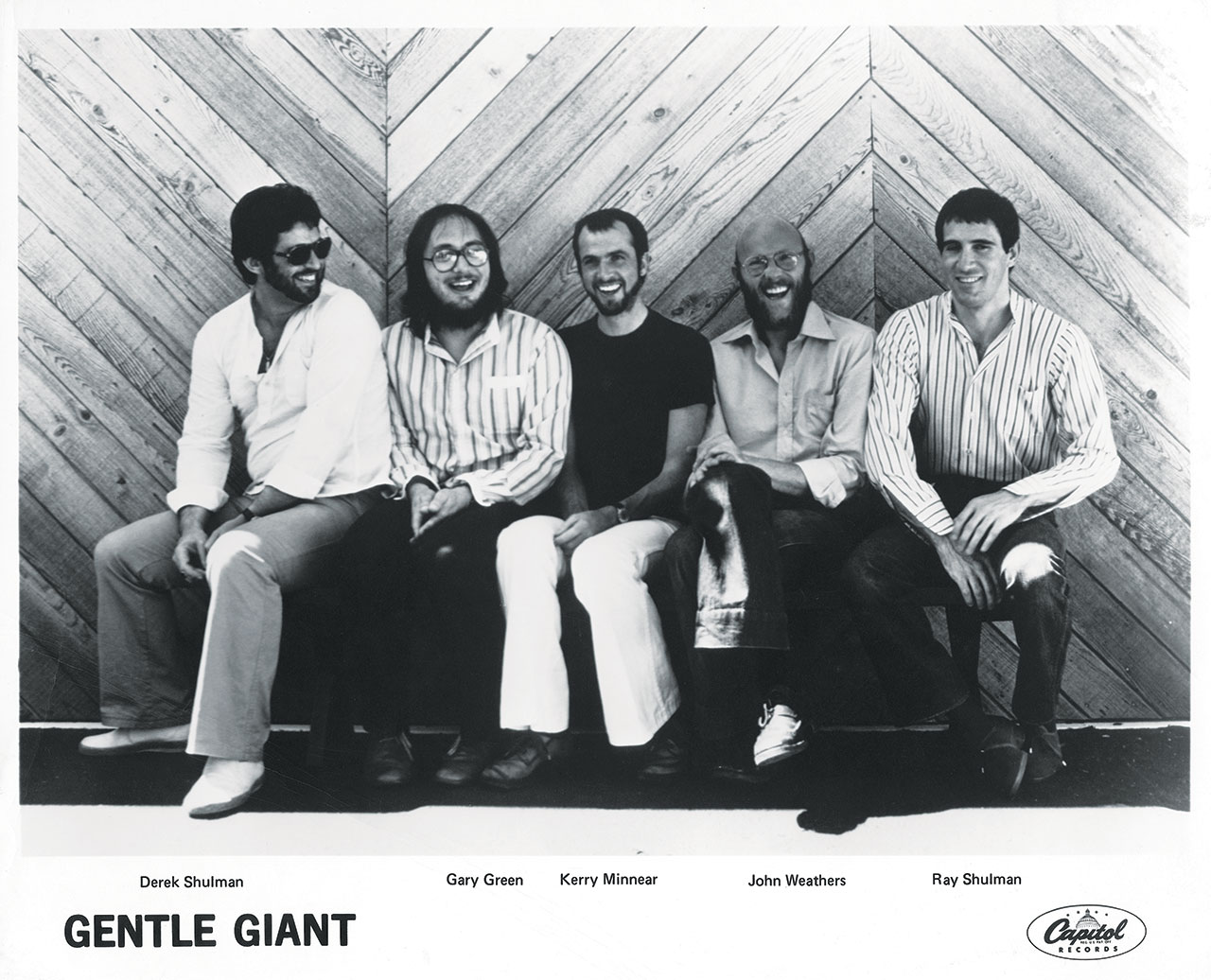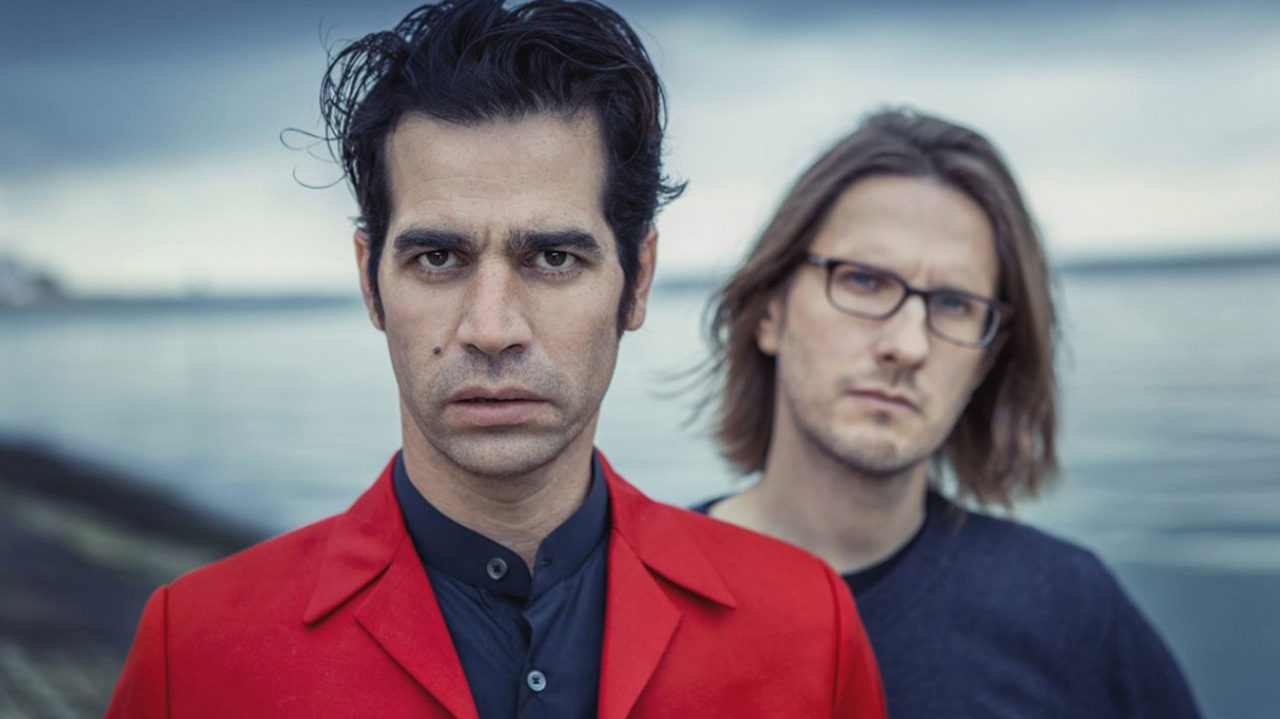
Select the newsletters you’d like to receive. Then, add your email to sign up.
You are now subscribed
Your newsletter sign-up was successful
Want to add more newsletters?

Every Friday
Louder
Louder’s weekly newsletter is jam-packed with the team’s personal highlights from the last seven days, including features, breaking news, reviews and tons of juicy exclusives from the world of alternative music.

Every Friday
Classic Rock
The Classic Rock newsletter is an essential read for the discerning rock fan. Every week we bring you the news, reviews and the very best features and interviews from our extensive archive. Written by rock fans for rock fans.

Every Friday
Metal Hammer
For the last four decades Metal Hammer has been the world’s greatest metal magazine. Created by metalheads for metalheads, ‘Hammer takes you behind the scenes, closer to the action, and nearer to the bands that you love the most.

Every Friday
Prog
The Prog newsletter brings you the very best of Prog Magazine and our website, every Friday. We'll deliver you the very latest news from the Prog universe, informative features and archive material from Prog’s impressive vault.
You know what it’s like when you need to find an item, you rummage in your cupboards and it’s not there. Or at least it’s not where you thought you’d left it. Photos, tapes, trinkets, leaflets, keepsakes… all seem to have a life of their own when it comes to evading the search for one’s memorabilia. Accruing ‘stuff’ seems to be one of the things that comes with getting older. As is forgetting where you put it – or whether you really had it in the first place.
So imagine what it’s like if you were once a member of Gentle Giant. The band broke up in 1980 after an amazing decade-long career that produced a clutch of albums with some of the most adventurous and distinctive rock music of the 70s, in a crowded and highly competitive field.
It was Ian Crockett, the man behind the Madfish label’s recent spate of deluxe box sets by Steve Hillage, Wishbone Ash and Family, who made the calls that had the members of Gentle Giant putting their hands down the backs of their sofas in search of rarities that would eventually be included in the recently released Gentle Giant 30-disc box set, Unburied Treasure.
“Ian was incredibly diligent in putting his time and energy into this,” explains former GG vocalist and multi-instrumentalist Derek Shulman, at home in New York. “When he said we were going to do the box, he asked us all to start looking around for various bits and pieces like tapes, posters and so on.
"In the end, I think it was Gary [Green, guitarist] who had more stuff than anyone else in the band. It was from him that most of the photos and tapes – and the multi-track tapes of their debut album Gentle Giant that Steven Wilson would remix – came from.”

Nearly 40 years after notes from Gentle Giant’s last live performance had faded away, at the Global On-Reflection Giant Gathering fan convention in New Jersey in October 2019, drummer Malcolm Mortimore, Gary Green, keyboard player Kerry Minnear and Derek Shulman gathered together around a table to unveil the contents of Unburied Treasure, a huge collection brimming with all the band’s studio output newly remastered, and hours of previously unreleased in-concert recordings.
Obviously aimed at the collectors’ market, it’s limited to just 2,000 copies worldwide, and includes a 136-page hardback book chronicling the life and times of the band, a signed photo, and numerous items of ephemera. Watching the four former members as they pull out the contents in front of fans in New Jersey, it’s evident that even they are surprised at how extensive it is.
Sign up below to get the latest from Prog, plus exclusive special offers, direct to your inbox!
Holding up the coffee-table book, Shulman looks astonished as he turns the pages. Later, as Green looks through the accompanying 96-page tour history book, he exclaims: “I took this photo,” holding it open at a full-page photo looking down on to a stage.
“I climbed up the lighting tower at Montreal Alouettes’ Stadium when Mahavishnu Orchestra opened for us. Can you believe it?” A burst of incredulity from his bandmates shakes Green’s resolve. “Oh, hang on…” he says. “No, it wasn’t Mahavishnu Orchestra, it was Weather Report!” Even then he doesn’t sound entirely sure.
There’s greater certainty, however, about the contents of the 30 audio CDs in this box set, 15 of which are previously unreleased gig recordings that chart the band’s progress across the stages of Europe and the US between 1972 and 1980. Some artists are understandably wary about issuing live recordings in which there are some notes awry or beats astray.
Others, such as King Crimson’s Robert Fripp, have long maintained that there’s a valuable lesson in releasing recordings of performances where things haven’t always gone exactly to plan, for both band and audience alike. “I’m a little bit in-between, to be honest,” Shulman muses. “But to tell you the truth, I’m quite impressed as to how we played as precisely as we did.”

The reason Gentle Giant were as tight as they were, he explains, came down to sheer bloody hard work: “We worked our asses off to make sure our presentation on stage was as good as it could be. The songs we performed in-concert were always very different from the studio recordings.
"The way we looked at it was that the original recording was the sketch, but the live show was the painting, if you like. We expanded whatever recorded music we put into the live show and brought different factors and factions into it. It was a very different way to express ourselves.”
What is also eloquently expressed in those live performances, where instruments are nonchalantly – and impressively – swapped and circulated between band members during complex and nuanced medleys, was that here was a band with a white-knuckle grip on dynamics, brimming with character and can-do attitude.
Perhaps the real jewel in this overflowing box stuffed with gems is Steven Wilson’s surround-sound mix of the band’s self-titled debut album from 1970. As with their other 5.1 titles, the contrasting arrangements and textural detail that was the band’s ambitious default setting is sensitively explored and extrapolated into a mesmerising listening experience by Wilson’s expansive mix.
It was originally recorded at a time when they were sleeping on producer Tony Visconti’s floor, and the future for the band was by no means certain. In this respect, that first album is testimony to a remarkable leap of faith, not just by the musicians, but also their management, as the newly formed Gentle Giant made the transition from the soul/pop that brothers Derek, Ray and Phil Shulman had been playing in Simon Dupree And The Big Sound (one-hit wonders in 1967 with the psychedelic Kites), to become something light years away from the pop world that had seemed to be their fate.

Another leap of faith was required of the band after the departure of Phil Shulman after 1972’s Octopus.
“It was a shock for the band, yes, but more a shock for me and Ray because we were brothers,” says Derek. “Phil wasn’t a focal point, but he’d do all these bits and pieces very well indeed. When he said he was leaving, we were upset, to say the least. Octopus was a very well-received album, we felt we were on our way. Then he said: ‘I can’t do this anymore.’
"Understandably, in retrospect, because he had family and he had to choose between one or the other. I take my hat off to him to have done the right thing for his own life. We didn’t quite know what to do. I remember me and Ray walking along the street, talking to each other about what we should do - if we should just break up or not.
“The stress and the fracture and the regrouping are shown on the next album, In A Glass House, which was a very hard record to make. It was very intense. I couldn’t listen to it for two or three years after we made it, because emotionally it was hard. The others in the band were hit by it, of course, but they were less impacted than we were, perhaps. But we found our way, dusted ourselves off and probably became much bigger.”
All of that personal history and experience, both public and private, is etched deep into every inch of Unburied Treasure and the music it contains. There are other precious musical commodities in there as well: originality and authenticity. “We weren’t trying to be King Crimson or Jethro Tull or The Eagles or Frank Zappa or Black Sabbath or Elvis or whoever. We were trying to be ourselves,” says Shulman.

After the band called it a day and the members went off to carve out different lives for themselves, moving house, changing jobs, creating different opportunities, it would be easy to think that interest in Gentle Giant would, understandably, have waned.
Yet nearly four decades later, the band’s artistic stock and value has risen rather than declined. While guitarist Gary Green and drummer Malcolm Mortimore founded Three Friends in 2008 (joined briefly by keyboard player Kerry Minnear) as a vehicle for performing Gentle Giant’s music, the prospect of a full-blown reunion remains a forlorn hope. Derek Shulman, for one, has never been tempted to try to get the band back together.
“There’s a saying that you can never go home again. I didn’t go back to Portsmouth, where I grew up. I left there when I was 24. It’s not where I belong any more. Gentle Giant was home at that point in our lives. To relive something that we closed the book on would feel spooky, and we would be doing it for a different reason to the reasons we did it originally. The risk is you end up a parody of who you are, and I don’t ever want to be that.”
Although Shulman definitely rules out returning to the stage, one wonders whether Gentle Giant’s custodians aren’t missing out on the opportunity for some truly niche merchandise, namely marketing the ‘Shulberry’, a bespoke three-stringed instrument invented by the band.
“Anyone can build one. Get a piece of wood, put three strings on it, give them violin tuning and you’ve got a Shulberry! It’ll cost you a tenner,” Shulman says, laughing. “You know what happened to the original? Gary chopped it up for firewood. He needed a fire to keep him warm. True story!”
As our conversation draws to a close, he mentions that he’s been renovating his apartment, in the process revealing some discoveries that suggest Unburied Treasure may not be the last word on Gentle Giant.
“I’ve found things that I’d completely forgotten about, including a couple of live tapes that are not part of this box. They sound very well recorded, so we’re going to put them out next year. One is going to be called The Missing Tape. Owning something that you can handle and see is a good thing, rather than something that is just peripheral. I think fans want to hold something that’s not just ones and zeros.”
